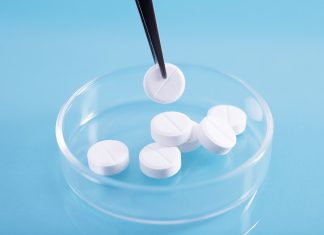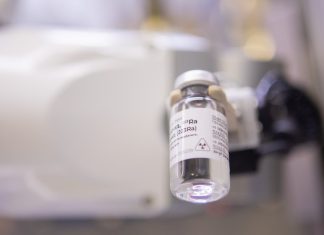Russian scientists have discovered that inflammation in brain tissues after a stroke can be suppressed with some organic substances that pertain to N-heterocycles class, the press service of the Russian Research Foundation reports. These compounds protect nerve cells from death even if the treatment began a day after the attack.
“There are a large number of settlements in our country that are remote from district centers, so it was no accident that we waited for a whole day before injecting the drug to experimental rats. The findings showed the prospects for further research into N-heterocycle derivatives for creating effective domestic drugs to help patients recover after a stroke,” said Vadim Negrebetsky, Director of the Pirogov Russian National Research and Testing Center (Moscow).
Strokes and other forms of brain hemorrhages have become one of the main causes of premature death in most developed countries of the world, along with heart attacks, heart failure, and various forms of cancers. According to WHO statistics, about 15 million people annually suffer strokes, 5 million of them die, and another 5 million become disabled.
Neurons are able to live without oxygen for an extremely limited time, for about six to seven minutes, which is why strokes often lead to mass cell death in those regions of the brain where blood circulation has been disrupted, and many cells die after the restoration of circulation. In recent years, doctors and biologists have been actively working on the creation of drugs that can protect neurons from death and prevent the development of the most severe consequences of strokes.
Negrebetsky and his colleagues found similar properties in some derivatives of nitrogen heterocycles, which is the scientific term for ring-shaped hydrocarbon molecules that include nitrogen atoms. These include, in particular, substances from the racetam group, including piracetam, a popular nootropic with unproven efficacy.
Russian scientists have managed to synthesize a new type of such compounds with a long “tail” consisting of additional hydrocarbon chains connected to the racetam ring. This addition, as scientists have suggested, will improve the solubility of the drug and increase its biological activity in brain tissues damaged after a stroke.
The researchers tested the work of these molecules on rats with artificially induced stroke. In some cases, biologists administered the drug almost immediately after the hemorrhage began, and in others, a day after the onset of the attack, which simulated the conditions when patients live far from major cities and specialized medical centers.
Observations showed that animals that received the drug showed higher exploratory and motor activity in behavioral tests than those who did not receive the drug. This was also the case for those rats in whose body the drug was injected a day after the attack. Such results of experiments, according to the researchers, make their development especially promising for the creation of new drugs for strokes.




